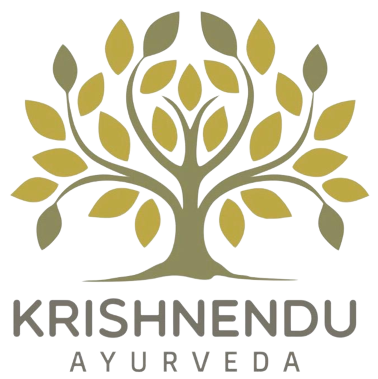Paralysis in Ayurveda
Ayurvedic Treatment for Paralysis in Kerala, India
Paralysis is the loss of muscle movement in the body. The sense of movement is controlled by communication between the sensory nerves which are part of the peripheral nervous system and the central nervous system which is comprised of the brain and spinal cord. Disruption of communication of nerve impulses anywhere along the pathway from the brain to the muscles can impair control of muscle movement and cause muscle weakness and loss of coordination. Muscle weakness can progress to paralysis, loss of the ability to move the muscles.
There are many types and degrees of paralysis. The condition can be:
- Partial: When you still have some control of your muscles (sometimes called paresis).
- Complete: When you can’t move your muscles at all.
- Permanent: When muscle control never comes back.
- Temporary: When some or all muscle control returns.
- Flaccid: When the muscles get flabby and shrink.
- Spastic: When the muscles are tight and hard and jerk around oddly (spasm).
Paralysis can occur in any part of the body and is either localized when it affects only one part of the body or generalized when it affects a wider area of the body. Localized paralysis often affects areas such as the face, hands, feet, or vocal cords. Generalized paralysis is broken down based on how much of the body is paralyzed:
- Monoplegia: This affects one limb only, such as one arm or one leg.
- Hemiplegia: It affects one side of the body, such as the leg and arm of the same side of the body.
- Diplegia: It affects the same area on both sides of the body, such as both arms or both sides of the face.
- Paraplegia: This affects both legs and sometimes parts of the trunk.
- Quadriplegia: It affects both arms and both legs and sometimes the entire area from the neck down. The function of the heart, lungs, and other organs might also be affected.
Causes
Paralysis can be caused due to different reasons, some of which can be serious. Depending on the cause, it may be temporary or permanent. Some causes of paralysis are:
- Stroke
- Spinal cord injury
- Head injury
- Multiple sclerosis
- Cerebral palsy
- Guillain-Barré syndrome
- Peripheral neuropathy
- Toxins/poisons
- ALS (Lou Gehrig’s disease)
Symptoms
Depending on the type and cause of the issue symptoms of paralysis may vary. The most common paralysis symptom is the loss of muscle function in one or more parts of the body. Other symptoms of paralysis are:
- numbness or pain in the affected muscles
- muscle weakness
- visible signs of muscle loss (muscle atrophy)
- stiffness
- involuntary spasms or twitches
The Ayurvedic Explanation
According to ayurveda, paralysis occurs when the vata dosha aggravates In the brain. Strenuous exercises, continuous exposure to stress, sleeplessness or obstruction of channels present in the brain lead to aggravation of the vata dosha. Aggravated vata dosha can dry up the nerves with an adverse effect on the opposite side of the body.
Ayurveda Treatment for Paralysis
The brain sends the message to perform an activity and nerves do the conduction to do everything. So if the core element is affected, we ought to handle it with utmost care to strengthen the muscles and nerves. Common Ayurveda treatment for paralysis are:
- Panchakarma
Panchakarma is one of the most famous treatment methods in Ayurveda. The process consists of five steps for the detoxification and rejuvenation of mind and body. This treatment contains herbal massages and cleansing enemas. - Abhyanga
Applying stimulating oils like Bhringaraj, Til Taila on the Shira (head) and pressing down on the scalp in gentle, circular motions remarkably soothes the mind. This, in turn, boosts blood circulation to the central nervous system. - Swedana
Swedana will help to open the pores in the body and helps to eliminate waste materials and increases absorption. This therapy also helps to reduce stiffness and increase range of movements. - Nasya
The nose is the door to consciousness and the pathway to our inner pharmacy. Medications that are administered via the nasal passages affect the mind, prana vata, tarpaka kapha, sadhaka pitta, and majja dhatu. - Virechana
Virechana is a controlled process that gathers ama (toxins) from many pitta locations in the body, concentrates it in the small intestine, and then discharges it. Virechana customarily leads to a state where the toxic and disease-causing pitta is removed from the body. - Shiro Vasti
Shiro vasti is the procedure where medicated oil is retained on the head for a particular period. This treatment helps in treating paralysis, depression, anxiety and insomnia. This treatment helps cool the head and refresh the mind.
Diet Practices
Food plays an important role and a few changes in your diet can help improve your condition. A few food items to include and reduce are:
Include:
- Plenty of vegetables
- Various Fruits.
- Grain and cereals
- High fibre varieties such as bread, cereals, rice, pasta, and oats.
- Lean meats and poultry, fish, eggs
- Nuts, seeds, and beans.
- Milk, yoghurt, cheese, and their alternatives
- Drink plenty of water.
Reduce:
- High saturated fat such as biscuits, cakes, pastries, processed meats.
- Fried Burgers, pizza, fried foods, potato chips
- Saturated fats such as butter, cream, cooking margarine, coconut oil, and palm oil.
- Avoid foods and drinks containing added salt.
- Avoid foods and drinks containing added sugars
- Sugar-sweetened Beverages
Ayurveda treatment for paralysis focuses on strengthening the muscles and nerves and treating it from the core. At Krishnendu Ayurveda, we have a very systematic approach in treating paralysis; we plan a customized treatment for each individual which is specific to their symptoms and needs.

